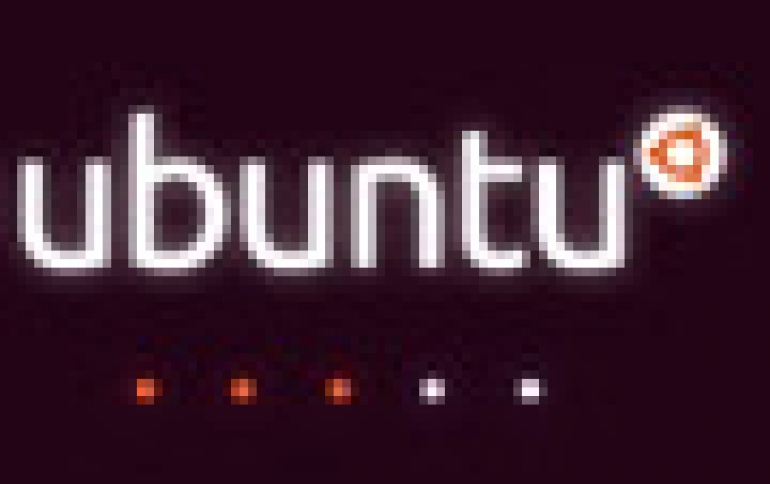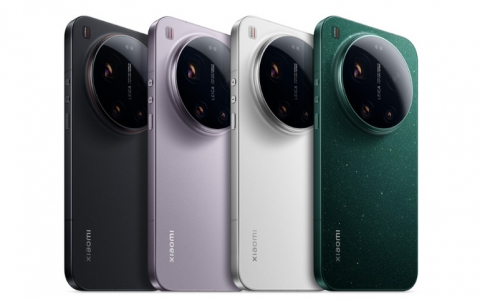
Latest Ubuntu Offers Cloud Features and New Desktop Interface
Canonical today announced the upcoming release of the Ubuntu operating system on April 28, 2011 for public download.
Ubuntu 11.04, a free alternative to Windows, introduces Unity, Ubuntu's new interface, which is simpler, easier to use and more beautiful than previous editions of Ubuntu.
Ubuntu 11.04 takes advantage of modern graphics to provide a visually rich interface for the PC that is inspired by smartphone and tablet design thinking. For older PCs, Ubuntu will automatically determine if their graphics card supports Unity and provide a "classic" experience when Unity would not work. Users can also choose the classic desktop experience for familiarity or consistency or where there are large desktop deployments and not all can move to Unity immediately.
Users who install Ubuntu 11.04 will find a clean workspace with a launcher on the left-hand side of the screen. The same interface is used whether on a netbook, notebook or desktop PC. The launcher is configurable, allowing the user to choose which applications they want in a single click, while adding and removing applications is a snap.
Ubuntu 11.04 moves away from traditional interfaces, embracing fast search as the best way to find applications and files. This is a trend that comes to Ubuntu from the Web, where users have come to prefer search as the starting point for most journeys. Searching is hosted in the dash. The dash brings files, applications, music and video together in a single location. It's all searchable through the same bar.
When seeking applications users will see the most recently used or installed apps and suggestions for apps to download through the Ubuntu Software Centre. Applications can be dragged to the launcher for easy access. An open application will be highlighted in the launcher while active, can be locked to the launcher if preferred, or will remove itself from the launcher when closed. Applications can be searched by name or by category, so whether a user knows the name of the app or not, it is instantly discoverable.
Searching for files is done in the same way. The system allows search by file name or by type. It will present most recent files, downloads and favorites. Clicking on a file opens it immediately. This marks a shift from the traditional "files and folders" approach to organizing files and introduces the search method that users prefer and will find much faster and more efficient. Files and folders can still be accessed in the traditional way, but testing suggests that users quickly embrace the new search-driven approach for everyday use.
There are numerous other enhancements that users will enjoy. A "global menu" for most pre-installed apps means the menus for all applications will be in the same place at the top of the screen. Menus are shown only when needed. Users can switch between multiple screens easily, further reducing clutter on any workspace. There are dozens of handy keyboard shortcuts to navigate through screens and applications. The volume indicator allows a user to adjust the volume and queue, play, switch and stop the music - without ever having to go to the music playing app.
Touch screens are fully supported in Ubuntu 11.04. Gestures trigger actions like scrolling, workspace-switching and expanding and contracting screens.
The Ubuntu Software Centre has been integrated with the dash and allows users to add applications to their system in a few clicks. Reviews and ratings of the applications have been added so that users can participate on a whole new level, sharing their experiences of applications and helping others find the best apps. Games from publishers like Introversion have been added and will continue to appear to extend the range of software available to users.
Ubuntu One is a cloud service for individual users. It offers free online syncing and sharing solutions for contacts and files, combined with a music streaming service currently available on both iPhone and Android platforms anywhere in the world. The official version of the Windows client is coming soon, with a major upgrade to the public Beta available now for testing.
As well as delivering increased speed and performance for file syncing, users adopting Ubuntu One can now access their files on Android, import contacts from Facebook and experience full contact syncing with Gmail. Feature updates for music streaming include additional supported file formats and playlist management.
For the first time, it will be possible to test-drive Ubuntu online using only your browser. Visitors to Ubuntu.com will be able to access a complete version of the latest product without having to download anything.
Ubuntu 11.04 will be available for download from April 28 at www.ubuntu.com. Free online trial of Ubuntu 11.04 will be available from ubuntu.com from release.
Ubuntu One is available today at one.ubuntu.com and apps are available from the Android Marketplace and iTunes AppStore. Ubuntu Software Centre is available to Ubuntu users in the launcher or under the Applications menu.
Technical updates
Ubuntu Server
--------
Server provisioning eased through addition of cobbler and mcollective 14 percent reduction in typical power usage through addition of PowerNap 2.0.
New Linux Kernel, 2.6.38, which includes:
- AppArmor support in Kernel for improved security
- Support for Intel's Intelligent Power Sharing (IPS)
- filesystem improvements to btrfs, Ext4 and XFS
- driver updates and hardware support updates
libvirt, the virtualisation API updated with extensive bug fixes and feature updates.
Default dhcpd server updated from dhcp3 to isc-dhcp (version 4)
Fully certified J2EE stack in Ubuntu based on Jonas + Oracle JDK + Postgres. Certification was completed by OW2.
Ubuntu for cloud deployments
-------------------
Eucalypus 2.02 integrated with security and efficiency improvements. OpenStack 'Cactus' release in technology preview as a download for Ubuntu.
cloud-init updated to 0.60 bringing resizing and hostname attribution at first boot.
Ubuntu for desktops
------------------------
Ubuntu "Unity" mode provides new interface on graphic cards with OpenGL support.
Ubuntu "classic" mode provides continuity of experience for businesses while offering a clear upgrade path.
Ubuntu 11.04 takes advantage of modern graphics to provide a visually rich interface for the PC that is inspired by smartphone and tablet design thinking. For older PCs, Ubuntu will automatically determine if their graphics card supports Unity and provide a "classic" experience when Unity would not work. Users can also choose the classic desktop experience for familiarity or consistency or where there are large desktop deployments and not all can move to Unity immediately.
Users who install Ubuntu 11.04 will find a clean workspace with a launcher on the left-hand side of the screen. The same interface is used whether on a netbook, notebook or desktop PC. The launcher is configurable, allowing the user to choose which applications they want in a single click, while adding and removing applications is a snap.
Ubuntu 11.04 moves away from traditional interfaces, embracing fast search as the best way to find applications and files. This is a trend that comes to Ubuntu from the Web, where users have come to prefer search as the starting point for most journeys. Searching is hosted in the dash. The dash brings files, applications, music and video together in a single location. It's all searchable through the same bar.
When seeking applications users will see the most recently used or installed apps and suggestions for apps to download through the Ubuntu Software Centre. Applications can be dragged to the launcher for easy access. An open application will be highlighted in the launcher while active, can be locked to the launcher if preferred, or will remove itself from the launcher when closed. Applications can be searched by name or by category, so whether a user knows the name of the app or not, it is instantly discoverable.
Searching for files is done in the same way. The system allows search by file name or by type. It will present most recent files, downloads and favorites. Clicking on a file opens it immediately. This marks a shift from the traditional "files and folders" approach to organizing files and introduces the search method that users prefer and will find much faster and more efficient. Files and folders can still be accessed in the traditional way, but testing suggests that users quickly embrace the new search-driven approach for everyday use.
There are numerous other enhancements that users will enjoy. A "global menu" for most pre-installed apps means the menus for all applications will be in the same place at the top of the screen. Menus are shown only when needed. Users can switch between multiple screens easily, further reducing clutter on any workspace. There are dozens of handy keyboard shortcuts to navigate through screens and applications. The volume indicator allows a user to adjust the volume and queue, play, switch and stop the music - without ever having to go to the music playing app.
Touch screens are fully supported in Ubuntu 11.04. Gestures trigger actions like scrolling, workspace-switching and expanding and contracting screens.
The Ubuntu Software Centre has been integrated with the dash and allows users to add applications to their system in a few clicks. Reviews and ratings of the applications have been added so that users can participate on a whole new level, sharing their experiences of applications and helping others find the best apps. Games from publishers like Introversion have been added and will continue to appear to extend the range of software available to users.
Ubuntu One is a cloud service for individual users. It offers free online syncing and sharing solutions for contacts and files, combined with a music streaming service currently available on both iPhone and Android platforms anywhere in the world. The official version of the Windows client is coming soon, with a major upgrade to the public Beta available now for testing.
As well as delivering increased speed and performance for file syncing, users adopting Ubuntu One can now access their files on Android, import contacts from Facebook and experience full contact syncing with Gmail. Feature updates for music streaming include additional supported file formats and playlist management.
For the first time, it will be possible to test-drive Ubuntu online using only your browser. Visitors to Ubuntu.com will be able to access a complete version of the latest product without having to download anything.
Ubuntu 11.04 will be available for download from April 28 at www.ubuntu.com. Free online trial of Ubuntu 11.04 will be available from ubuntu.com from release.
Ubuntu One is available today at one.ubuntu.com and apps are available from the Android Marketplace and iTunes AppStore. Ubuntu Software Centre is available to Ubuntu users in the launcher or under the Applications menu.
Technical updates
Ubuntu Server
--------
Server provisioning eased through addition of cobbler and mcollective 14 percent reduction in typical power usage through addition of PowerNap 2.0.
New Linux Kernel, 2.6.38, which includes:
- AppArmor support in Kernel for improved security
- Support for Intel's Intelligent Power Sharing (IPS)
- filesystem improvements to btrfs, Ext4 and XFS
- driver updates and hardware support updates
libvirt, the virtualisation API updated with extensive bug fixes and feature updates.
Default dhcpd server updated from dhcp3 to isc-dhcp (version 4)
Fully certified J2EE stack in Ubuntu based on Jonas + Oracle JDK + Postgres. Certification was completed by OW2.
Ubuntu for cloud deployments
-------------------
Eucalypus 2.02 integrated with security and efficiency improvements. OpenStack 'Cactus' release in technology preview as a download for Ubuntu.
cloud-init updated to 0.60 bringing resizing and hostname attribution at first boot.
Ubuntu for desktops
------------------------
Ubuntu "Unity" mode provides new interface on graphic cards with OpenGL support.
Ubuntu "classic" mode provides continuity of experience for businesses while offering a clear upgrade path.



















